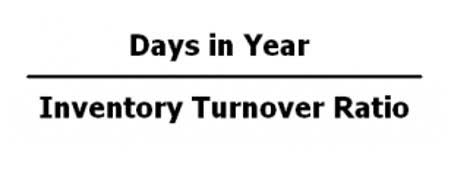
The business’s facts and circumstances will determine whether the cash basis method is appropriate for its situation. In short, the numerous problems with the cash basis of accounting usually cause businesses to abandon it after they move beyond their initial startup phases. Lastly, you’ll be able to determine if cash basis accounting is right for you and your business.Let’s get to it. You’d record both the expenses and the income in June to line up with when you completed the project and income was earned — even though you weren’t actually paid until July.
What Is the Difference Between Cash Basis and Accrual Accounting?
This subscription-based service helps you track invoices, expenses, employee hours and more. If you work with an accountant, you can easily share your spreadsheets to provide an accurate look at your finances and tax obligations. Using the cash method for income taxes is popular with businesses for two main reasons.

2: The Accrual Basis and Cash Basis of Accounting
- This method might help you delay paying income tax on some earnings during a specific tax year — which can be especially helpful since small businesses have plenty of expenses and costs such as overhead, rent, and more.
- This means that under the cash basis accounting method, a journal entry for a transaction will only be recorded when there is an exchange of actual cash with vendors or customers.
- The same may be true for ongoing relationships with vendors with whom you do business.
- It’s very black-or-white and doesn’t take nuances into account like the time it takes for transactions to go through, inventory on hand, and expenses incurred.
- The IRS has specific rules regarding which businesses can use cash basis accounting.
- Here, we’ll cover everything you need to know about the basics of cash basis accounting.
- Cash basis accounting is usually unsuitable for businesses looking to secure financing or manage investments, as lenders and investors prefer to see accrual-based records.
Similarly, expenses are recorded when they are incurred, not when they are paid. This method provides a more accurate picture of a company’s long-term financial performance, as it matches revenues with the expenses incurred to generate them. This matching principle is a cornerstone of accrual accounting, offering a more detailed and realistic view of profitability over time. There are several reasons accrual-basis accounting is preferred to cash-basis accounting. Accrual-basis accounting is required by GAAP because it typically provides a better sense of the financial well-being of a company.
Prefer watching? Explore Cash Basis VS Accrual Accounting in under 1 minute (Youtube video)
Under the cash method of accounting, transactions are recorded when cash is received or paid. In other words, revenue is recorded when cash payment is received for the sale of products or services, and expenses are recorded when cash is paid to vendors for purchases of products or services. Most small businesses and individuals operate on a cash basis and prepare their income taxes using this method. GAAP is a set of accounting standards created by the Financial Accounting Standards Board (FASB) and the Governmental Accounting Standards Board (GASB). It’s key to note that though they are similar in many areas, there are still key areas that differ between GAAP and IFRS.
However, certain types of businesses, such as C corporations and partnerships with C corporation partners, may be required to use accrual accounting regardless of their revenue levels. This makes it essential for business owners to consult with tax professionals to determine the most advantageous accounting method for their specific circumstances. Accrual accounting records income or expenses as soon as they are incurred, regardless of when payment is made or received, and this can provide a more accurate picture of the company’s financial health. An accrual-based system may better meet your needs if you have inventory, accounts payable, or need more detailed financial information. While recording transactions under the cash basis accounting method, businesses need to account for cash receipts and disbursements as such transactions occur. It does not account for accounts receivable and accounts payable, as the transactions are recorded when money is exchanged.
- Accrual-basis and cash-basis accounting each have their advantages and drawbacks.
- The cash method is just as the name implies—it records transactions only when cash flows.
- Generally, businesses with average annual gross receipts of $25 million or less over the past three years can opt for cash basis accounting.
- That timing discrepancy could make it difficult for you to determine whether that job was profitable.
- If you sold $600 worth of hats to a client, you wouldn’t write down the sale until the customer’s money arrived in your bank account.
Cash-basis accounting documents earnings when you receive them and expenses when you pay them. However, the accrual method accounts for earnings the moment they are owed to you and expenses the moment you owe them; it does not matter when your money enters or leaves your account. Let’s look at an example of how cash and accrual accounting affect the bottom line differently.
- In this case, the income would only be recognized once payment has been received from the customer.
- Wave also offers both cash and accrual, although accrual is the default method for reporting.
- Cash basis accounting is suitable for small businesses with simple transactions and few accounts receivable and payable.
- The key advantage of the cash method is its simplicity—it only accounts for cash paid or received.
- If you use accrual accounting, you’ll need to keep a close eye on cash flow in order to avoid potentially devastating consequences.
- For investors, it’s important to understand the impact of both methods when making investment decisions.
- This can be advantageous for businesses looking to defer income to a later tax year or accelerate expenses to reduce taxable income in the current year.

Although cash basis accounting has its perks, it does come with its disadvantages. For example, if you’re a retailer of kids’ clothing, you might experience a slow summer, but a surge in sales come August and early September. Without forecasting and completing cash basis accounting measures income based on a comparative analysis, you might assume you’re in a profitable spot without accounting for the past decline in sales and a slow-to-steady fall. The accrual method is the more commonly used method, particularly by publicly traded companies.


The following video summarizes the differencebetween cash and accrual basis of accounting. Revenue is not difficult to define or measure;it is the inflow of assets from the sale of goods and services tocustomers, measured by the cash expected to be received fromcustomers. Under the revenue recognitionprinciple, revenues should be earned and realized beforethey https://www.bookstime.com/ are recognized (recorded). The accrual method is considered to better match revenues and expenses and standardizes reporting information for comparability purposes. Companies might also use modified accrual accounting and modified cash basis accounting. The key advantage of the cash method is its simplicity—it only accounts for cash paid or received.
